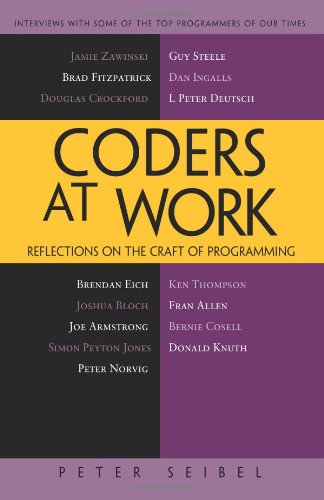L Peter Deutsch on Software as a Capital Asset Versus Expense
The problem being the old saying in the business: "fast, cheap, good—pick any two." If you build things fast and I you have some way of building them inexpensively, it's very unlikely that they're going to be good. But this s|s school of thought says you shouldn't expect software to last.
I think behind this perhaps is a mindset of software as expense vs. software as capital asset. I'm very much in the software-as-capital-asset school. When I was working at ParcPlace and Adele Goldberg was out there evangelizing abject-oriented design, part of the way we talked about objects and part of the way we advocated object-oriented design to our customers and potential customers is to say, "Look, you should treat software as a capital asset"
And there is no such thing as a capital asset that doesn't require ongoing maintenance and investment You sh([should expect that there's going to b» be sol some cost at associated with maintaining a growing library of reusable software. And that is going to complicate your accounting because i means you can't charge the cost of building a piece of software only to the project or the customer that's motivating the it the way you would think of a capital asset.
Notes:
Sell software to customers as a capital asset, and as such, it requires maintenance costs, but not as a throwaway expense.
Folksonomies: software capital
Taxonomies:
/technology and computing/software (0.617480)
/education/school (0.381202)
/business and industrial (0.203881)
Keywords:
capital asset (0.979680 (positive:0.486792)), Versus Expense Sell (0.796251 (positive:0.316361)), software (0.637509 (negative:-0.132881)), throwaway expense (0.584289 (negative:-0.575925)), Peter Deutsch (0.564214 (positive:0.316361)), old saying (0.550326 (negative:-0.460949)), maintenance costs (0.537742 (negative:-0.229098)), Adele Goldberg (0.534468 (neutral:0.000000)), software-as-capital-asset school (0.517269 (negative:-0.428360)), object-oriented design (0.502571 (positive:0.532664)), abject-oriented design (0.502415 (neutral:0.000000)), potential customers (0.496306 (positive:0.532664)), ongoing maintenance (0.494826 (neutral:0.000000)), reusable software (0.494127 (positive:0.593144)), ParcPlace (0.364509 (neutral:0.000000)), mindset (0.357953 (positive:0.728318)), things (0.347102 (positive:0.357457)), problem (0.346097 (negative:-0.460949)), business (0.345968 (negative:-0.460949)), thought (0.343592 (negative:-0.677653)), thing (0.342500 (neutral:0.000000)), objects (0.341126 (positive:0.532665)), accounting (0.340781 (neutral:0.000000)), piece (0.340552 (neutral:0.000000)), project (0.340447 (neutral:0.000000))
Entities:
Peter Deutsch:Person (0.957461 (positive:0.316361)), Adele Goldberg:Person (0.945056 (neutral:0.000000)), software-as-capital-asset school:Organization (0.857183 (negative:-0.428360))
Concepts:
Investment (0.915180): dbpedia | freebase | opencyc





